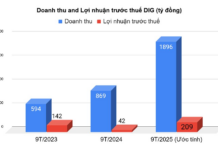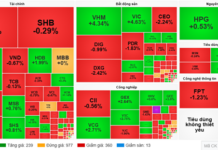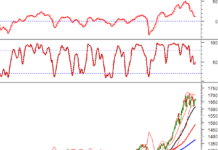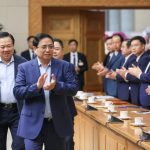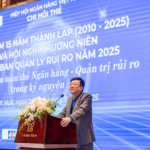On the morning of August 21, Minister of Industry and Trade Nguyen Hong Dien answered questions at the National Assembly’s Standing Committee on thematic supervision and questioning since the beginning of the 15th National Assembly term.
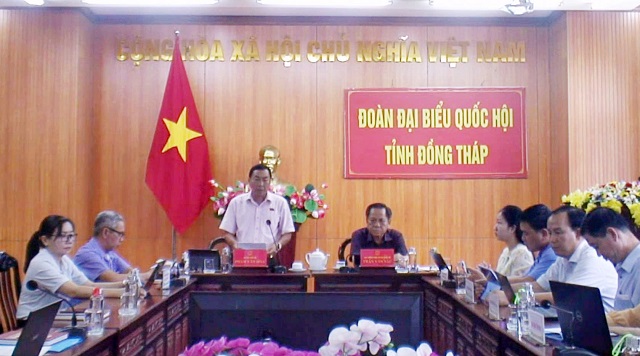
Delegate Pham Van Hoa – Dong Thap Province’s NA Delegation
|
Delegate Pham Van Hoa from Dong Thap Province suggested that the current residential electricity tariff structure, which consists of six tiers, is not aligned with the actual consumption patterns of the people. For instance, the first tier (0-50 kWh) is set too low. He asked, “What solution does the Ministry of Industry and Trade have to amend the electricity tariff structure to make it more suitable?” He also inquired about the possibility of considering a VAT exemption of 10% on electricity bills to support the people, especially low-income households.
In response, Minister of Industry and Trade Nguyen Hong Dien explained that the tiered electricity tariff structure is a common model adopted by all countries to encourage customers to use electricity sparingly. Electricity is a unique product compared to others, as increased production has a more significant impact on the environment.
Currently, Decision No. 28 stipulates the average retail electricity price with six tiers. Following the resolution of the National Assembly’s Standing Committee and the Government’s directives, the Ministry of Industry and Trade has taken the lead in amending this decision.
The draft submitted to the Government proposes a revision of the tariff structure to five tiers. The first tier, as suggested by the NA delegate, will be increased from 0-50 kWh to 0-100 kWh.
According to the Minister, this calculation will contribute to supporting the poor. At the same time, the subsidy for the poor remains unchanged, with the State budget providing support for up to 30 kWh. For consumption beyond this threshold up to the end of the first tier, consumers will be charged as per regulations.
Additionally, Minister Dien mentioned that the draft proposes adjusting the electricity prices for production and residential use to reduce the gap between different consumer groups. Some production sectors will have their prices adjusted correspondingly with the rates in the service sector to ensure no cross-subsidization among electricity users.
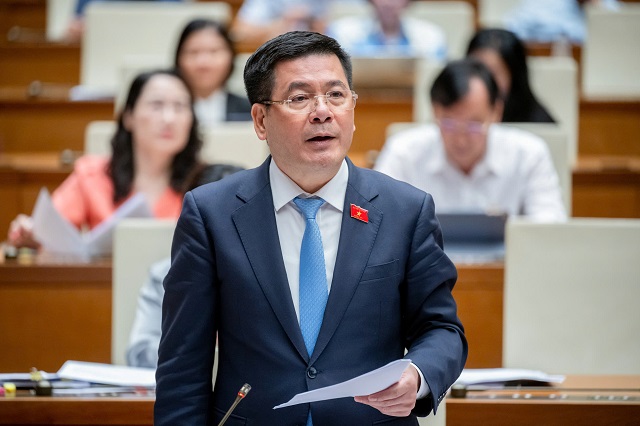 Minister of Industry and Trade Nguyen Hong Dien answering questions
|
Joining the question-and-answer session to clarify the issue of reducing VAT on electricity prices, the Minister of Finance stated that taxes are the primary source of revenue for the state budget, and reducing taxes to address fluctuations in a particular sector is not reasonable. Over time, the National Assembly has provided tax reductions for businesses and households, amounting to a substantial sum of 200 trillion VND. Regarding electricity tariffs, there are already provisions in place to support low-income households and families with preferential treatment. The tiered tariff structure also encourages households to practice electricity conservation.
On the matter of electricity price management, Delegate Huynh Thanh Phuong shared that voters and experts have pointed out certain shortcomings in this regard, which is considered one of the main reasons for the electricity sector’s losses in 2022 and 2023. Therefore, the delegate requested the Minister of Industry and Trade to propose optimal solutions for electricity price management in the upcoming period.
Minister Nguyen Hong Dien clarified that the Ministry of Industry and Trade performs three primary functions: planning and strategy development, policy formulation, and inspection and supervision. The Ministry’s role in providing advice on electricity pricing policies adheres strictly to the current legal framework, particularly the Laws on Electricity and Pricing.
Minister Nguyen Hong Dien also mentioned that the Government has recently decided to transfer the National Load Dispatch Center (A0) from EVN to the Ministry of Industry and Trade. This move will ensure transparency and fairness in the operation of the electricity system. Additionally, the Government has issued a decree on direct electricity purchase by large customers and is about to promulgate a decree on encouraging the use of rooftop solar power… These measures will gradually improve the electricity market.
Minister Nguyen Hong Dien further informed that the Ministry of Industry and Trade is advising the Government on issuing a decree to encourage the development of rooftop solar power. To promote the utilization of clean energy sources, the Ministry is considering a pilot program that allows excess electricity generated by households to be sold to the national grid. However, this must comply with technical standards and legal regulations.
Nhat Quang
Major General To An Xo: Materials stockpiling leads to a 300% increase in electricity prices
The spokesperson of the Ministry of Public Security revealed that there have been cases where investors and contractors collude to inflate the prices of materials and electrical equipment, resulting in high electricity prices and harm to consumers.
Prime Minister: State-owned enterprises holding substantial resources need to be profitable
On the morning of February 5th, Prime Minister Pham Minh Chinh emphasized the importance of profitable operations and increased contributions to GDP growth and the state budget by working with 19 conglomerates and state-owned enterprises. These businesses possess significant resources and must strive to generate more profits.
New proposal on electricity pricing management by the Ministry of Industry and Trade
In the report submitted to the Government regarding the draft amendment of Decision 24/2017 on the average retail electricity pricing mechanism proposed by the Ministry of Industry and Trade, in addition to the Ministry of Finance, the Ministry of Industry and Trade suggests the involvement of relevant ministries to coordinate and assess the impact of the electricity pricing adjustment.













